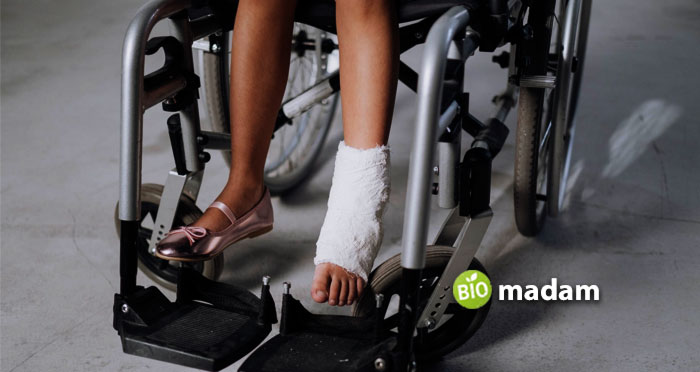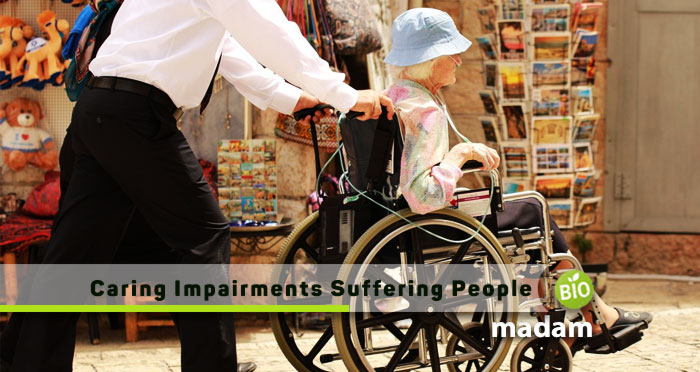It can be difficult to care for someone who has difficulty walking. This is especially true if you don’t know what to do or where to start. But don’t worry, we’re here to help. Many people take for granted the ability to walk. For those who suffer from impairments that make it difficult to walk, this everyday task can be a real challenge. Here are some tips on how to properly care for someone who has difficulty walking.
1. At-Home Care
It might seem like a big ask to have to look after a family member who has a walking impairment. At-home care also referred to as domiciliary care, is a caring professional dedicated to helping those who need help with the activities of daily living. Some examples of things they will be able to do are assist with cooking, bathing, and dressing, if necessary.

2. Speak with Their Doctor
The first step in caring for a person who has difficulty walking is to speak with the doctor. Before you can properly care for someone you need to ask their doctor what kind of difficulties you should expect and how to best help them cope with their impairments. Usually, the doctor will be able to give specific tips and advice on how to provide the best care for them, as well as the things you should do as a caregiver and the things you should avoid. Sometimes the issue isn’t necessarily a physical ailment, but a mental one. If this is the case, it’s important to speak with the doctor to get the necessary information about how to provide the care needed.
3. Proper Posture
It can be easy for someone who has an impairment that makes it difficult to walk to develop bad posture. They may lean forward or spread their legs out, which can cause problems with pain and general discomfort. The caregiver should ensure that the person stands up straight and doesn’t lean too far forward. By keeping their legs and torso straight, they can reduce the amount of pressure put on their back and joints.
4. Support Them as They Walk
It’s important for a caregiver to support someone who has an impairment that makes it difficult to walk even while they’re walking. For instance, if the person has a disease or condition like Cerebral Palsy and tends to lean forward, the caregiver should use their other hand to gently push them back upright so there is less strain on their legs and joints. One of the most common mistakes we make when we pick someone up is to bend over forward. This puts a lot of stress and pressure on the back of the person you’re picking up, which can cause damage to their spine. It can be tempting to hoist someone who has difficulty walking by bending over and grabbing their arms, but this is not the most effective way to safely lift them. Instead, they should be lifted by bending forward at the knees, then placing your hands under their arms, then lifting up.
5. Sit Them Down When Needed
Sometimes, even with support from a caregiver, it may be necessary for someone who has an impairment that makes it difficult to walk to sit down and take a break. If they seem tired or exhausted after walking long distances, they may need to rest and recover before continuing.
6. Be Patient and Understanding
Sometimes people who have an impairment that makes it difficult to walk will need a break. If they seem exhausted or out of breath when walking, stop and give them time to catch their breath before continuing on. This is especially true if the caregiver doesn’t know the person very well or if this is the first time they’ve met. Not only will this enable them to better cope with their impairment, but it can also prevent injuries and accidents from happening. Hopefully, these tips will help you continue to care for a person without causing them additional harm. It’s important for someone who has an impairment that makes it difficult to walk to have patience with the caregiver.

It is important for caregivers to be patient and understanding when working with someone who has an impairment that makes it difficult to walk. This person may feel frustrated or confused, so the caregiver needs to be there to help them through this difficult period of adjustment. There are many ways that a caregiver can help make things easier for someone who has difficulty walking, such as speaking with their doctor, supporting them as they walk, and sitting them down when needed. With patience and care, these individuals can still lead full and happy lives.

Hi, they call me Jenna, and I am also known for achieving a gold medal during my Ph.D. in science life. I always had a dream to educate people through my utmost writing hobby. So, I chose this blogging path, and Biomadam gave me this opportunity to present for them. I now stand to entertain you. Continue reading my articles & discuss if you’ve any confusion through the comment section below.

